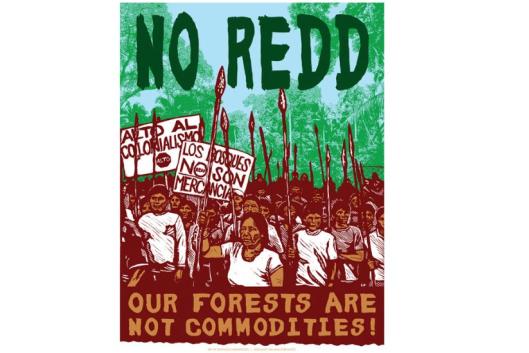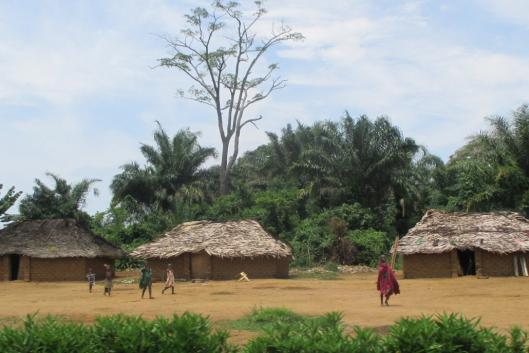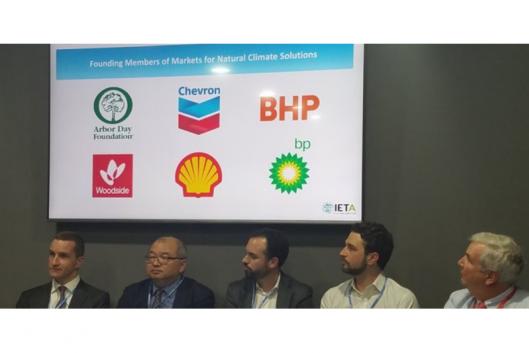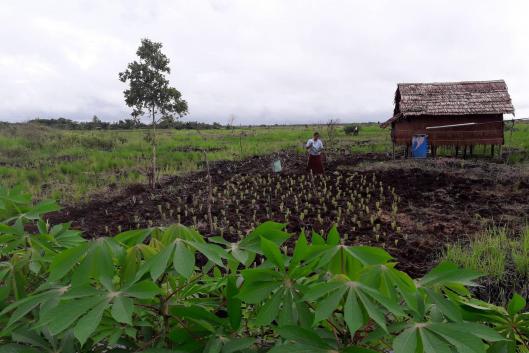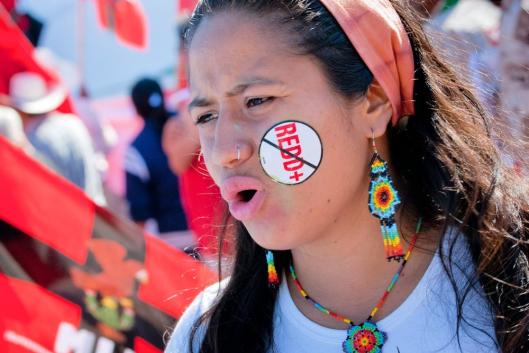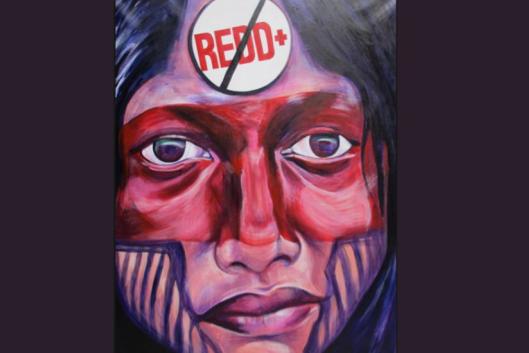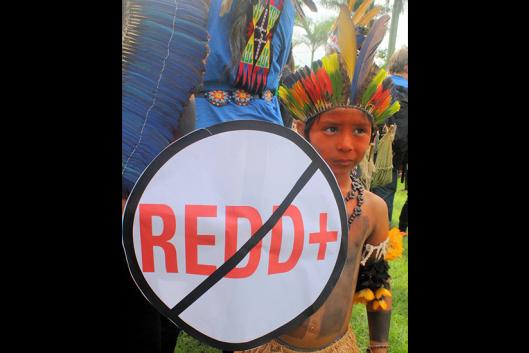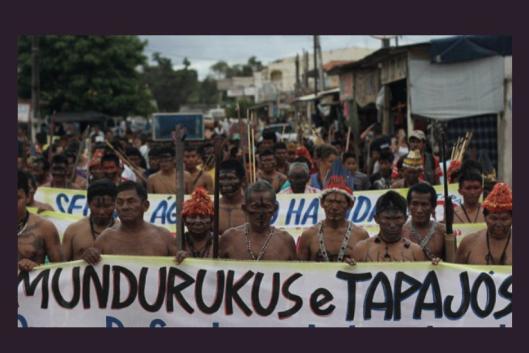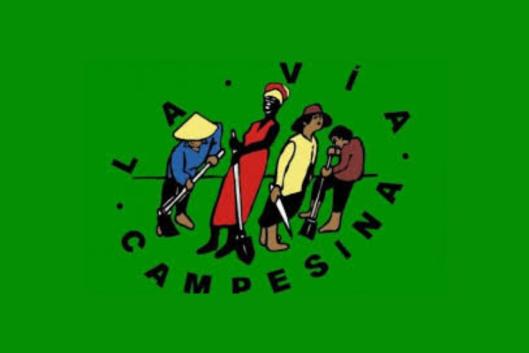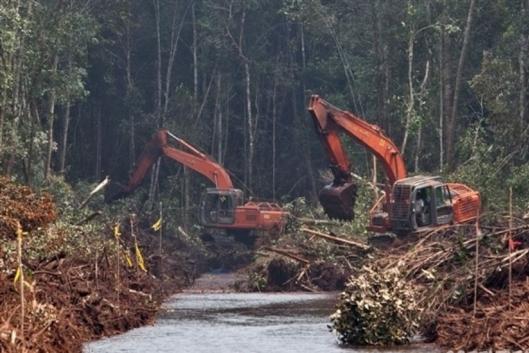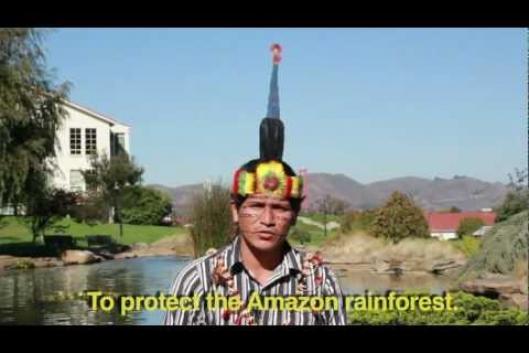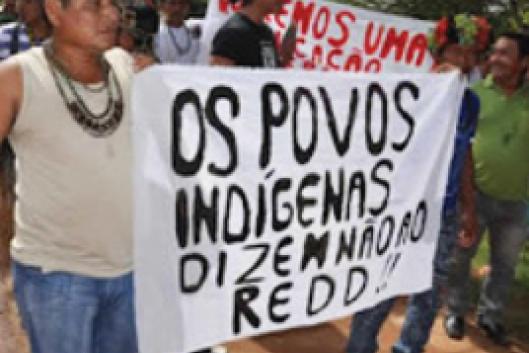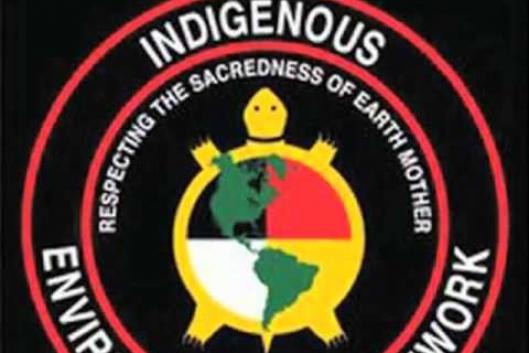It is becoming increasingly evident that efforts by governments, NGOs, institutions and corporations to make REDD their principal strategy for reducing deforestation in countries with tropical rainforests are not working. Trees continue to come down at record rates in the name of “development projects” such as mining, industrial palm oil, soy and other crops, hydroelectric power plants and infrastructure for facilitating the displacement of raw materials. Even supposed “sustainable forest management” ends up causing more destruction.
Issue 184 - November 2012
Communities and forests threatened by REDD
WRM Bulletin
184
November 2012
OUR VIEWPOINT
COMMUNITIES AND FORESTS THREATENED BY REDD
-
14 December 2012The WRM has produced a new guide of “10 things communitties should know about REDD,” intended to provide broad information about REDD. The guide sums updifferent communities’ individual experiences with REDD projects throughout the world, recorded by WRM. The following is a summary of the contents of this new publication, written for a broad audience. Nearly 300 million people worldwide depend on tropical forests to live. But large corporations –whether their business is about exploiting lumber, petroleum, gas and coal, mining, agroindustrial monocultures (trees or food crops), industrial ranching or huge hydroelectric dams – are pillaging and destroying these forests.
-
14 December 2012Big NGOs’ support of REDD projects help polluter corporations to greenwash their image.
-
14 December 2012Article based on a field visit and conversations with villagers in 5 of the 7 most affected communities by this project.
-
14 December 2012Testimonies of community women impacted by carbon and forest conservation projects that today are included in the so-called Green Economy.
-
14 December 2012Social organizations try to prevent a Chiapas-California REDD agreement from going forward. They denounce the potential for increased emissions in California on the one hand and landgrabs in Chiapas on the other.
-
14 December 2012Costa Rica is currently known throughout the world for its efforts in forest conservation. This “success” is mainly attributable to its Payment for Environmental Services (or PSA for its initials in Spanish), a forerunner to the REDD program in Costa Rica.
-
14 December 2012A story of the peoples of the Atlantic Forest in southern Brazil in a disputed territory where the green economy competes with community-based economies.
PEOPLES IN ACTION
-
14 December 2012The Mundukuru indigenous community in the Brazilian Amazon state of Para decided to cancel a contract that would have allowed the Irish company “Celestial Green Ventures” to sell carbon credits from forests in their territory. The agreement was signed earlier this year giving the Irish company the right over the carbon in forests inside the indigenous territory. “We are going to cancel the deal. Many in the tribe didn’t want it, so to avoid problems we decided to stop it,” said Candido Waru, leader of a local association of the Munduruku people.
-
14 December 2012La Via Campesina International met in Surin, Thailand for the First Global Encounter on Agroecology and Seeds to share experience and construct a strategy and vision on agroecology and seeds. In Thailand there is a growing shift made by small-scale farmers to move from the green revolution based model of industrial farming into agroecology which La Via Campesina thinks is the corner stone of food sovereignty.
-
14 December 2012Several banks and other financial institutions around the world have been warned on last 6 November to avoid investments in pulp and paper mills associated with deforestation and human rights abuses in Indonesia. Sixty environmental and social non-governmental organisations, including a dozen Indonesian civil society groups, have sent letters asking for assurances that the financial institutions will not invest in increased pulp milling capacity by Asia Pulp and Paper (APP) or other companies associated with the Sinar Mas Group until reforms have been achieved.
-
14 December 2012The Pindaré Caru indigenous movement, composed of the Guajajara and Awá people, blocked the VALE multinational mining railway this past Oct. 3 in the town of Alto Alegre do Pindaré, State of Maranhão. The blockade was mounted in protest to the loosening of Brazilian legislation on indigenous rights (measures such as PEC 215 and Resolution 303/2012 by the State Attorney General). The aim of this loosening is to make it easier for multinational companies like VALE to appropriate indigenous territories and thus benefit even further from the exploitation of these riches.
RECOMMENDED
-
14 December 2012Against oil extraction in the Amazon forest in southern Ecuador:
-
14 December 2012New report: “Recognising Sacred Natural Sites and Territories in Kenya: An Analysis of how the Kenyan Constitution, National and International Laws can Support the Recognition of Sacred Natural Sites and their Community Governance Systems” by Adam Hussein Adam. Published by: Institute for Culture and Ecology (Kenya), African Biodiversity Network & the Gaia Foundation
-
14 December 2012By Sindicato dos Trabalhadores Rurais de Xapuri – Federação do Povo Huni Kui do Acre. What are the real problems of forest peoples in Acre? Why aren’t REDD and environmental services a solution to these problems? What concerns forest peoples about REDD and environmental services? Download the full document here
-
14 December 2012New report: “REDD-plus schemes in El Salvador: Low profile, friendly fancy dresses and commodification of ecosystems and territories” Announced in WRM Bulletin 180, the report by researchers Yvette Aguilar, Maritza Erazo and Francisco Soto is a summary of the issues raised by REDD schemes in El Salvador. The report is now available in English at http://unfccc.int/files/methods_science/redd/application/pdf/redd-plus_schemes_in_el_salvador_-_aguilar_erazo_soto_2012.pdf
-
14 December 2012The news source Mending News checks in with IEN (Indigenous Environmental Network) Executive Director, Tom Goldtooth, to get the download on the real story of REDD, the deceptive climate 'solution' proposed by the UN. It sounds good on paper "Reducing Emissions from Deforestation and Forest Degradation in Developing Countries" but the reality is that REDD enforces the global colonization of mother earth and a stolen future.
